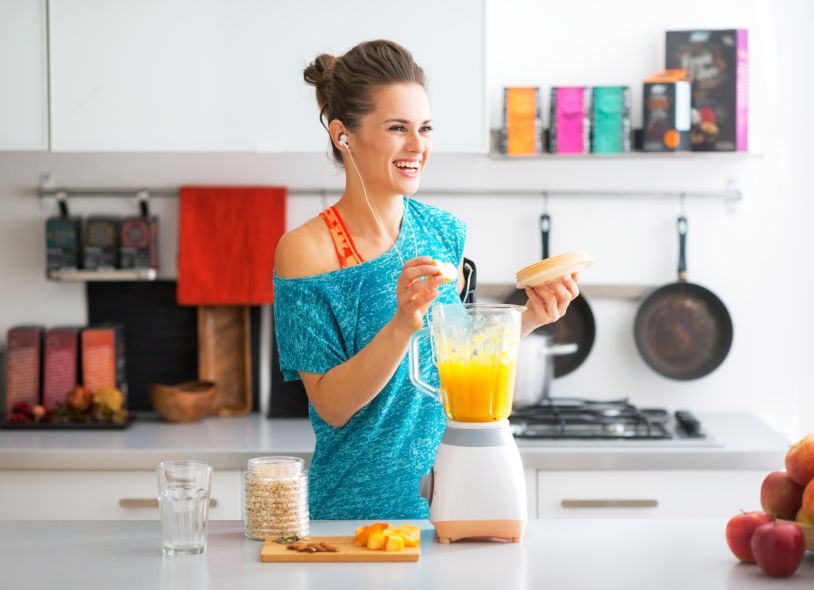If you’re a female athlete in high school and your busy schedule is squeezing out breakfast, Lyndsay Barto has a message for you:
Make time. Make breakfast.
“I’d say the most common misconception by female athletes in high school is the amount of calories they need daily to reach their needs,” said registered dietitian Lyndsay Barto, wellness program manager at Preventure, Inc.
“Most young female athletes are not getting the nutrition they need to meet their needs, given the exercise they do for their sport.”
Barto recently delivered that message to a crowd of several dozen students, parents, and coaches at Notre Dame Academy in Park Hills, one of the high schools that partner with St. Elizabeth Healthcare for sports medicine and training services.
Barto told the NDA audience that young female athletes should make it a goal to eat three meals and three snacks daily to meet their needs.
“Do not skip meals,” she said. “Students, you’re getting up at the last minute and getting yourself ready and out the door. The last thing you’re thinking of is eating breakfast. But it’s so important.
“Athletes have a higher calorie requirement than the general population. You burn a lot of calories on a daily basis.”
Barto also reminded the student-athletes that not all calories are created equal.
“The type of calories you get is important, too,” she said. “You want a balance of carbohydrates, fats and proteins.
“It’s all about building muscle. The more muscle mass you’re able to build, the more endurance that you’ll have and the harder you’ll be able to work.”
Other takeaways from Barto’s talk:
- Avoid sugary fare for your snacks: Sodas, energy drinks, candy, and even sports drinks will “give you a quick burst of energy, but not a long-lasting burst of energy,” Barto said. “Your body breaks it down quickly but then typically you’re going to crash.”
- Pair nutritional needs in your snacks: An apple may cause your blood sugar to spike, but if you put some peanut butter on it for protein, “your blood sugar won’t spike as high, but you won’t have that crash, either,” she said.
- Protein is your friend: “It’s what’s going to allow you to increase your muscle mass and allow your body to repair and recover after exercise,” Barto said. How much do you need? Figure between 0.7 and 1 gram per pound of body weight.
- But don’t get too much protein: That can lead to dehydration. “It’s possible to get all you need from your diet,” she said. “With supplements, your body ends up excreting a lot of it.” Barto said you don’t need to count each protein gram, but if you follow a vegetarian or vegan diet, “it’s definitely more challenging (to get enough protein.)” Try to pair proteins with your carbohydrates and fats.
- Good game-day foods: Two to four hours before activity, look for high-carbohydrate foods that aren’t hard to digest, like turkey or chicken sandwiches, cereal, yogurt, or pasta. Thirty to 60 minutes before, try a piece of fruit or sports bar, something your body can break down quickly.
- Don’t forget fluids: Taking in enough water is important as well. Be sure to start hydrating at least four hours before your game or race, and to rehydrate afterward. Urine color is a good indicator of dehydration. If it is dark, you need to rehydrate.


